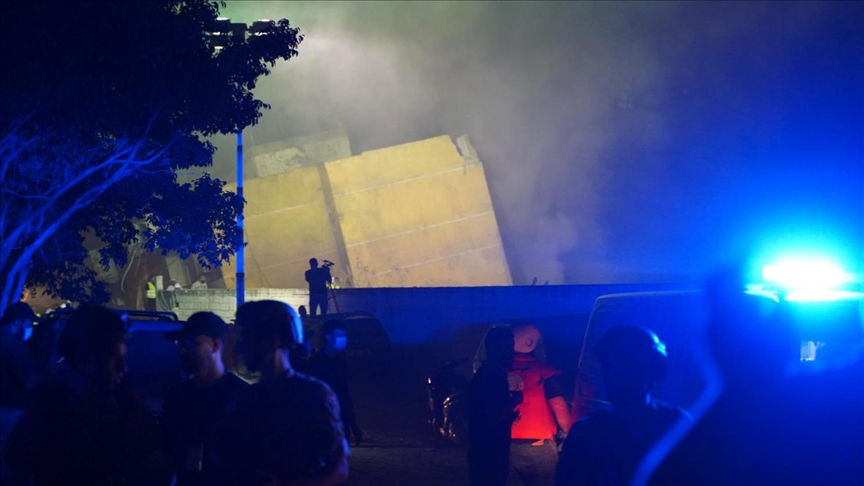HAMILTON, Canada
The UN on Friday expressed “great alarm” over the developments in Lebanon’s Beirut following latest heavy Israeli bombardment.
“We are watching the developments unfolding in Beirut with great alarm,” UN spokesman Stephane Dujarric told reporters during a news conference after Israeli army on Friday evening carried out a heavy and unprecedented airstrike on Beirut’s southern suburb area, claiming to have attacked the main headquarters of Lebanese group Hezbollah.
He expressed the UN’s deep concern about “the sharp escalation of hostilities across the Blue Line with strikes in Lebanon.”
Emphasizing that the latest developments place both Lebanese and Israeli civilians at risk, Dujarric said they also threaten regional security and stability.
“I can tell you that our peacekeeping mission here, better known as UN Interim Force in Lebanon (UNIFIL), continues to engage actively with the parties to help de-escalate tensions along the Blue Line and avoid further misunderstandings,” he added.
Dujarric reiterated the UN’s support for diplomatic efforts for ending violence, restore stability and prevent further humanitarian suffering in the region.
He also renewed calls for an immediate de-escalation, return to cessation of hostilities and urged for full implementation of the UN Security Council resolution 1701.
UN Security Council Resolution 1701, adopted on August 11, 2006, calls for a complete cessation of hostilities between Lebanon and Israel and establishes a zone free of armed personnel and weapons, except for the Lebanese army and UNIFIL forces, between the Blue Line (the border between Lebanon and Israel) and the Litani River in southern Lebanon.
“Despite the extremely difficult situation, the peacekeeping missions, military and civilian peacekeepers, remain committed to their mission and continue to adapt in order to deliver on the mission’s mandate amidst a very hostile situation,” he added.
In response to a reporter’s question on the cause of “great alarm” for UN regarding Lebanon, Dujarric said: “Anyone who looks at the pictures and smoke billowing from a densely populated area should be alarmed to say the least.”
Dujarric also announced Acting Under-Secretary-General for Humanitarian Affairs Joyce Msuya’s allocation of $10 million from UN “Central Emergency Response Fund for the humanitarian response in Lebanon.”
“This is in addition to $10 million released earlier this week from the Lebanese humanitarian fund,” he said, adding that the UN will continue to closely monitor the humanitarian situation and further support the Lebanese government, which is leading in the aid response.
Israel has pounded Lebanon since Monday morning, killing over 700 people and injuring nearly 2,200 others, according to figures released by the Lebanese Health Ministry.
The ministry also said that the death toll in Lebanon since last October is 1,540, in addition to more than 77,000 displaced from southern and eastern parts of the country.
Hezbollah and Israel have been engaged in cross-border warfare since the start of Israel’s war on Gaza, which has killed more than 41,500 people, mostly women and children, following a cross-border attack by Hamas last Oct. 7.
The international community has warned against the strikes on Lebanon, as they raise the specter of turning the Gaza conflict into a regional war.

